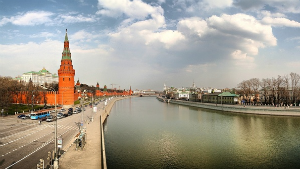
On Tuesday the Euro-Asiatic Federation, which brings together many of the Baptist Unions who were part of the Soviet Union, including Ukraine and Russia, issued a statement calling for a peaceful negotiation to the situation.
Quoting Jeremiah 6:16, it said ‘it is never possible to solve a country’s internal difficulties with outside force.’
Calling leaders of all sides to the negotiating table ‘not as adversaries or rivals, but as representatives of a people who share a common heritage and who have a desire for the welfare of each other’, the Baptist leaders cautioned about acting in a ‘hasty or unwise manner that may inflame tensions and draw neighbours into conflict with one another.’
It signed off by stating ‘We will continue to pray for our brothers in Ukraine and Russia, and we appeal to all parties with the words often repeated in Scripture, “peace to you.”’
Wider prayer was urged by Sergey Rakhuba, President of Russian Ministries, a BMS World Mission partner organisation.
In an email to supporters, he said that ‘my heart bleeds for people on both sides of this conflict’. He added that ‘while I love the Russian people and have committed my life and ministry to them, I cannot justify the actions of the Kremlin’.
He continued, ‘I urge the global Christian community to join with church leaders and Christians from both of these brother nations to pray and fast for the end to this dangerous situation and for the leaders of these countries.’
In the email he quoted a challenge to the church in Russia from Yuri Sipko, a prominent evangelical Russian leader and former president of the Union of Evangelical Christians-Baptists of Russia. The church, he said, must ‘resist pro-war rhetoric and propaganda, and to stand high with their prayers and spiritual responsibility.’
'Russian churches, as institutions standing guard over spiritual life, must declare their disagreement with lies. Russian churches must stop armed conflict. Russia must not become an aggressor. Too much blood has been spilled by our people, in order to spill the blood of our brother nation of Ukraine. God’s Word proclaims, “Do not be overcome by evil, but overcome evil with good” (Romans 12:21).’
Writing at the weekend Pavel Unguryan, a lawyer and Ukraine’s Missions Department Director with the Baptists of Ukraine, described the situation as ‘one step away from war’. He described how he had travelled from Kiev to Odessa, where alongside others he has been conducting peacekeeping events, ‘holding meetings with various political forces and army units to prevent the destruction of the independence and separatism of Ukraine which can lead to a war.’
He said the situation was complicated because, as in the Crimea, it is being ignited by separatists who set Russian speaking regions against Ukrainian speaking. He added that the position of Dr Alexsandr Turchynov, the Baptist elder currently the interim President of Ukraine, is for an 'exclusively peaceful solution of this critical situation.’
Urging Baptists across the world to unite in prayer. Mr Unguryan wrote, ‘I ask you kindly to pray fervently that Almighty God would intervene and not allow war on our peaceful land.’
Mr Unguryan’s attempts at peacemaking and reconiliation were indicative of many Christians in the country, said Tony Peck, the General Secretary of the European Baptist Federation. In a
Skype interview with Ethics Daily on Tuesday he described them as ‘standing in the gap’. During the demonstrations in the Maidan (Independence Square) in Kiev, two prayer tents operated throughout, alongside regular preaching.
Mr Peck too called for prayer for Dr Turchynov, and expressed his hope that having Baptists (not the state church) at the heart of the situation would help. ‘People like Dr Turchynov and Pavel Unguryan are respected for who they are, not some sort of state machinery.
‘Also our Baptist values of freedom, justice, religious freedom… in this situation the whole way we operate as Baptists gives us a unique perspective. It’s just great God has raised some people in that situation, people we have connections to, so we can try and support and get behind.’